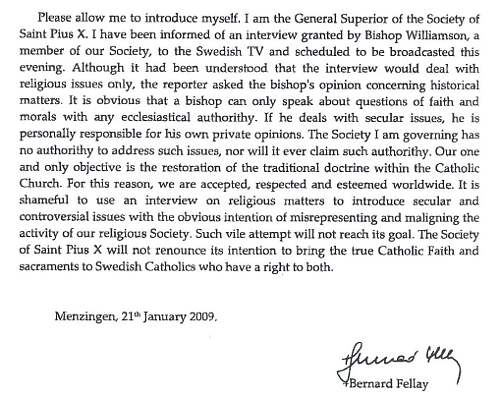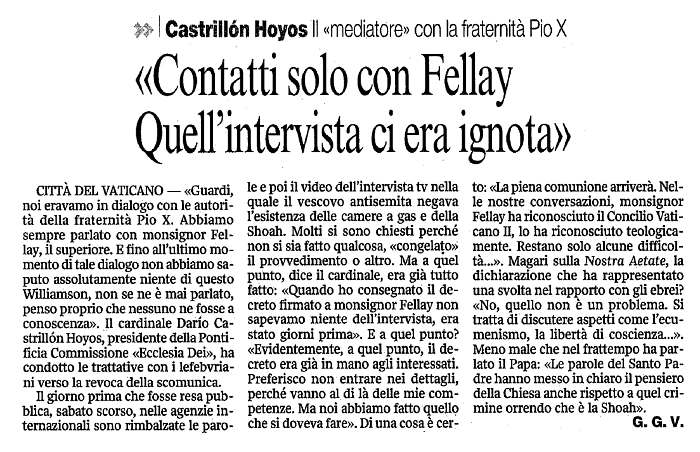SSPX begynner å reagere mot Holocaust-synspunkter innenfor egne rekker
Rorate cæli melder i dag at SSPX-broderskapet i Italia har utesteng p. Floriano Abrahamowicz, pga hans synspunkter på Holocaust – og også på grunn av andre problemarske ting han har gjort. (Andre steder har jeg lest at SSPX også har begynt å rydde på på sine nettsider, som inntil nå har inneholdt synspunkter på bl.a. Holocaust som ikke kan aksepteres.) Slik skriver Rorate cæli:
[Portion of the SSPX NOTE, according to several Italian news agencies:] «The action is in effect from Friday, February 6, and was taken for grave reasons of discipline. Father Floriano Abrahamowicz had expressed for some time positions distinct from the official ones of the Fraternity of Saint Pius X. The decision of the expulsion, though painful, was made necessary to avoid that the image of the Fraternity of Saint Pius X be distorted and, with it, that its work in the service of the Church be damaged.»
I en av de mange kommentarene til dette innlegget (mange av disse er forøvrig kristiske til SSPX-Italias avgjørelse), står det også følgende:
From the sounds of the statement given here, it seems as if Fr. Abrahamowicz has been saying things contrary to the SSPX’s position on previous occasions, not just this one. Note that it says «Father Floriano Abrahamowicz had expressed FOR SOME TIME positions distinct from the official ones….» Since this issue is a recent development, it sounds as if there are several things that have contributed to this. Also, if I remember correctly he gave the interview contrary to orders from his superiors.

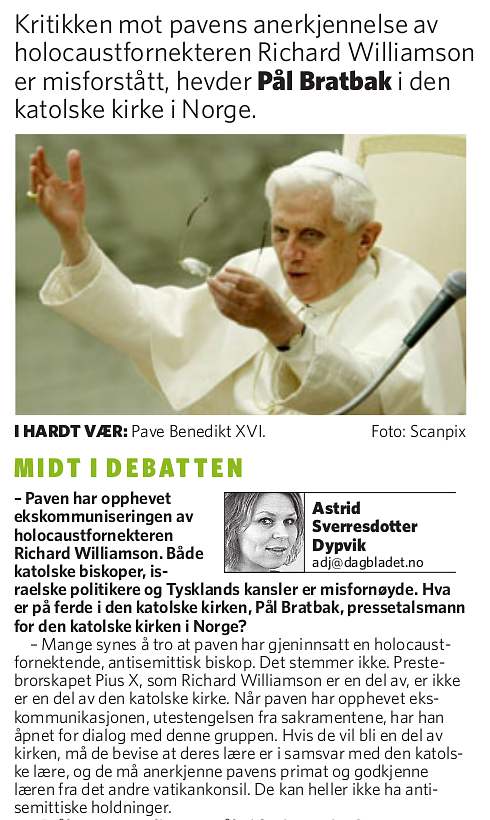
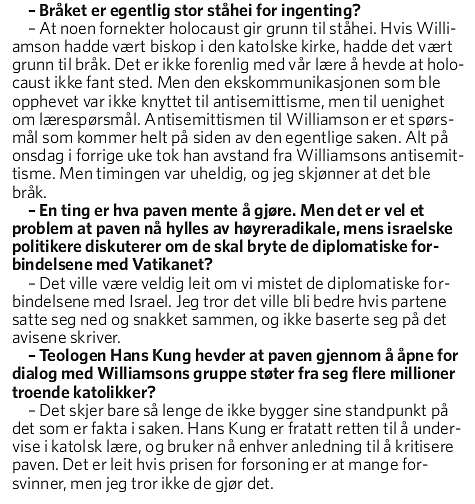
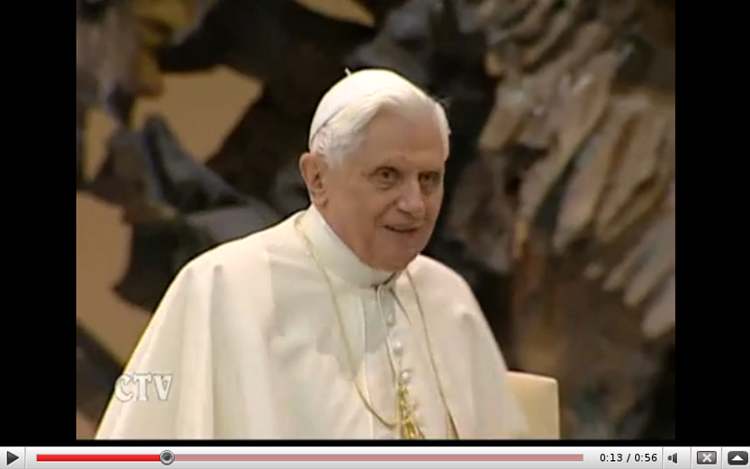

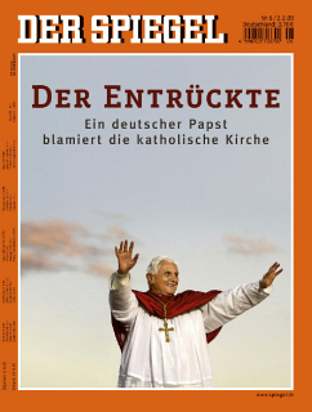 Biskop Willamsons uttalelser skaper stadig mer oppstyr, og det nytter visst ikke at både pave Benedikt og biskop Fellay selv stadig sier at de ikke har noen sympatier med teorier som setter spørsmålstegn ved Holocaust; at ca 6 millioner jøder ble drept under andre verdenskrig.
Biskop Willamsons uttalelser skaper stadig mer oppstyr, og det nytter visst ikke at både pave Benedikt og biskop Fellay selv stadig sier at de ikke har noen sympatier med teorier som setter spørsmålstegn ved Holocaust; at ca 6 millioner jøder ble drept under andre verdenskrig.